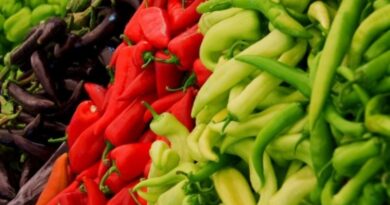Health Benefits of Jute Leaves (Ewedu Leaves)
Jute is a fresh green vegetable that grows frequently in tropical and subtropical climates. Jute leaves are utilized in Asia and Africa to make fiber that is both strong and environmentally friendly.
The leaves have a length of 6 to 10 cm and a width of 3.4 to 5 cm. Although it tastes a little unpleasant, it is quite nutritious. In this article, we go through the advantages jute leaves have for your health.
An annual herbaceous plant, jute grows to a height of 10 to 12 feet (3 to 3.6 meters). The plant needs warm, humid weather as well as enough water for better growth.
Typically, it favors sandy loam soil that drains well. It has a glabrous jute plant. Typically, leaves are elliptic-lanceolate, apically acute or acuminate, glabrous, and serrate.
They are 6–10 cm long and 3.5–5cm wide. The plant has a tiny, pale yellow flower with lance-shaped bracts that are 2-4 cm broad and 3-mm-long, oblong, apiculate sepals. The 5mm long, rectangular, and spathulate petals.
Jute leaves are a good source of vitamins, minerals, and other nutrients despite having a mildly unpleasant flavor. Jute plant has 94 g of vitamin K, 0.496 mg of vitamin B6, 2.73mg of iron, 225g of vitamin A, 28.7mg of vitamin C, and 0.222mg of copper per gram when boiled without salt.
Additionally, 87 grams of cooked jute contain numerous amino acids, including 0.021 grams of tryptophan, 0.113 grams of threonine, 0.152 grams of isoleucine, 0.266 grams of leucine, 0.151 grams of lysine, and 0.044 grams of methionine.
Read Also: 22 High Fiber Foods we have and their Contents
9 Health Benefits of Jute Leaves (Ewedu Leaves)

The annual herbaceous plant known as jute thrives in warm, humid environments with ample water supply. Jute leaves have a higher nutritional value while having a mildly bitter taste, which is why they are utilized all over the world to treat a variety of health issues. Here are a few well-known health advantages of regularly consuming jute leaves:
(1) Eye Health
A poor diet and nutrient deficits are common causes of eye issues. According to research, vitamin B6, folate, and other vitamins can help shield against vision issues that could lead to blindness.
Vitamin B6 is present in 0.496 mg of jute leaves. 38.15% of your recommended daily intake consumption is represented by this.
(2) Helps to Curb Internal Bleeding
Jute leaves contain a lot of vitamin K. Blood clotting benefits from this vitamin. Additionally, it aids in lowering the likelihood of jaundice and inadequate nutrient absorption.
When you consume jute leaves, your risk of contracting other common ailments like colitis, Crohn’s disease, and sprue is greatly decreased.
(3) Restless Leg
To treat this syndrome, the majority of specialists frequently suggest iron supplements. Alternately, since the jute plant is high in iron, you might increase your daily consumption of it. Iron content is a staggering 2.73 mg.
This amounts to about 34.13% of the daily allowance. Increased iron consumption will also lessen muscle spasms.
(4) Helps Fights Off Flu
Vitamin C is abundant in jute leaves, which strengthens the immune system. It also strengthens the body’s resistance to colds and viruses as a result.
Whenever you take vitamin C when you have the flu or a cold, you lower your chance of developing complications including pneumonia and lung infections.
Read Also: 15 Amazing Benefits of Drinking Water Always
(5) Good For Cancer Patients
Jute leaf vitamin B9 content. Even by itself, this lowers the risk of getting cancer. It gets rid of cancer in all its kinds, including lung, colon, and cervical cancer.
As a result, doctors advise it. The amount of vitamin B9 in a jute pant is 90 micrograms. This amounts to about 22.50% of the daily allowance.
(6) Good For Asthmatic Patients
If you take your recommended daily dose of magnesium, you can normalize your breathing if you have asthma. Jute leaves, which are a great source of magnesium, are another option. It will assist in eliminating wheezing and shortness of breath.
(7) Helps Regulate and Curb High Level Cholesterol To It’s Barest Minimum
According to studies, copper lowers the body’s levels of harmful cholesterol. In turn, this aids in raising the body’s levels of “good” cholesterol. The copper content in ute leaves is 0.222 mg. This amounts to around 24.67% of an average adult’s daily intake.
(8) Good For Healthy Teeth and Gum
Throughout infancy and adulthood, calcium helps to maintain the jaw bone strong while safeguarding the teeth. Additionally, it aids in the development of tightly-fitting teeth with no crevices for bacteria to hide.
Stack up on Jute leaves for calcium before you start experiencing issues with your gums.
(9) Helps In New Cell Growth
Vitamin A is fantastic for speeding up skin repair and renewal. Both internal and exterior epithelial cells require its assistance. Its impact on cell proliferation makes it an effective weapon against skin cancer. Vitamin A, which is great for cell growth and skin health, is abundant in jute leaves.
Thanks for reading through, we hope this article was immensely helpful. Please kindly share and drop your thoughts in the comments section below.



